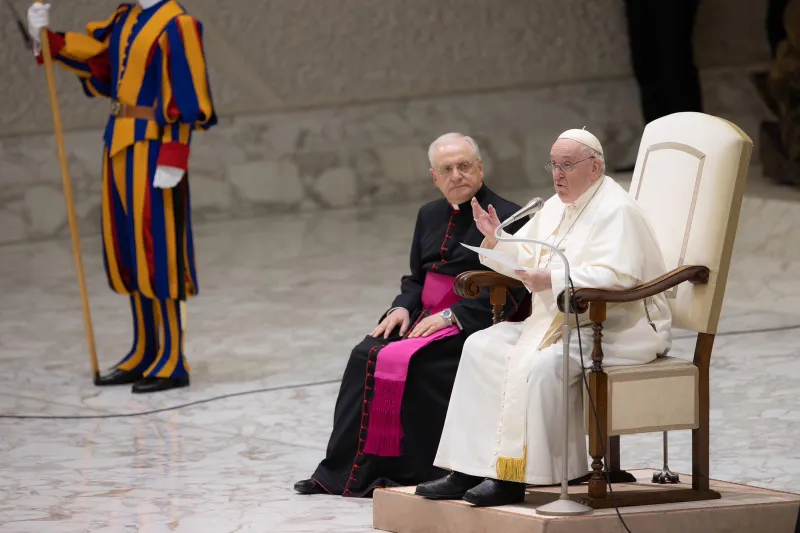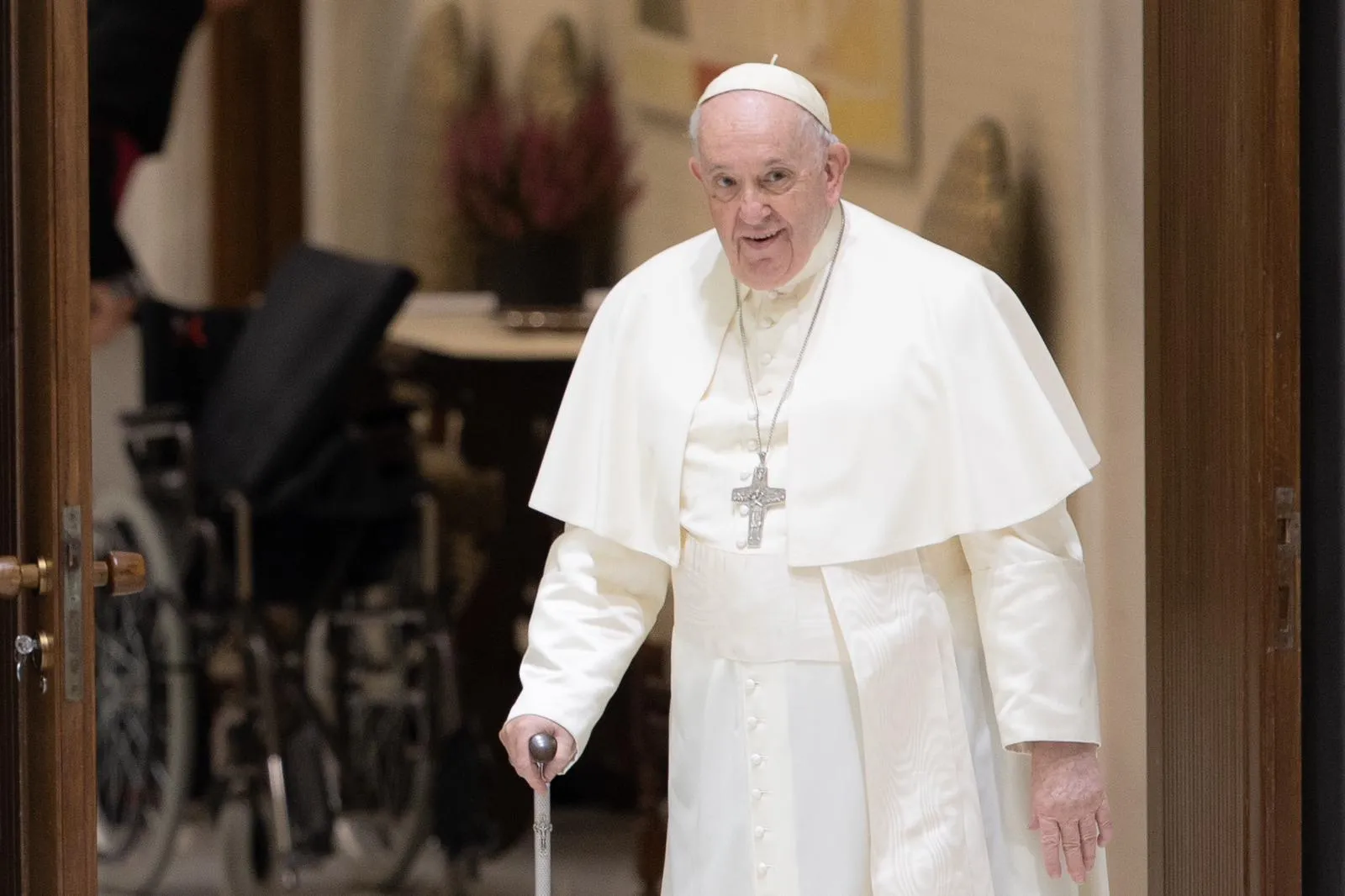 Pope Francis gives his message during the weekly general audience in the Vatican’s Paul VI Hall on Jan. 4, 2023 / Daniel Ibanez/CNA
Pope Francis gives his message during the weekly general audience in the Vatican’s Paul VI Hall on Jan. 4, 2023 / Daniel Ibanez/CNA
Vatican City, Jan 4, 2023 / 02:30 am (CNA).
Benedict XVI “always wanted to accompany us in the encounter with Jesus,” Pope Francis said at the start of his weekly public audience on Wednesday.
The pope began his message Jan. 4 with a reference to his predecessor, Pope Emeritus Benedict XVI, who died on Dec. 31 at the age of 95. The body of Benedict XVI is lying in state in St. Peter’s Basilica Jan. 2–4, before his funeral on Jan. 5.
“Before beginning this catechesis,” Francis said in the Vatican’s Paul VI Hall, “I would like us to join with those here beside us who are paying their respects to Benedict XVI, and to turn my thoughts to him, a great master of catechesis.”
Catechesis means religious instruction or teaching.
“His acute and gentle thought was not self-referential, but ecclesial, because he always wanted to accompany us in the encounter with Jesus,” he said.

“Jesus, Crucified and Risen, the Living One and the Lord, was the destination to which Pope Benedict led us, taking us by the hand,” the pope added. “May he help us rediscover in Christ the joy of believing and the hope of living.”
Pope Francis’ message on Wednesday was the final instruction in a series on the theme of discernment.
One of the important tools to support discernment, he said, is spiritual accompaniment, also called spiritual direction.
“It’s very important not to walk alone,” he underlined, encouraging Catholics to find a spiritual director, a lay person or a priest, who can help to “unmask misunderstandings, even grave ones, in our consideration of ourselves and our relationship with the Lord.”
The pope compared the experience of discernment without accompaniment to looking at yourself alone in a mirror: you can imagine things that are not there or see things in a distorted way.
“God’s grace in us always works on our nature. Thinking of a Gospel parable, we can always compare grace to the good seed and nature to the soil,” Francis said. “First of all, it is important to make ourselves known, without fear of sharing the most fragile aspects, where we find ourselves to be more sensitive, weak, or afraid of being judged.”
He emphasized that the person who accompanies us in our spiritual journey does not replace or substitute the Lord, but “walks alongside him or her, encouraging them to interpret what is stirring in their heart, the quintessential place where the Lord speaks.”
The Church commonly calls someone in this role a “spiritual director,” but Pope Francis said he prefers the name “spiritual companion.”
“Discernment is an art, an art that can be learned and which has its own rules,” he said. “If learned well, it enables spiritual experience to be lived in an ever more beautiful and orderly manner. Above all, discernment is a gift from God, which must always be asked for, without ever presuming to be expert and self-sufficient.”
The pope said the act of recounting our life, experiences, and spiritual searching in front of someone else can bring clarity.
It can also, he added, bring to light “the many thoughts that dwell within us, and which often unsettle us with their insistent refrains — how often, in dark times, have these thoughts come to us: ‘I have done everything wrong, I am worthless, no one understands me, I will never succeed, I am destined for failure,’ and so on.”
“False and poisonous thoughts, that the exchange with another helps to unmask, so we can feel we are loved and valued by the Lord for what we are, capable of doing good things for him,” he said.
Let us pray, Francis concluded: “Lord, give me the grace to discern. In life’s moments, help me to know what I should do. And send me the people who can help me discern.”
